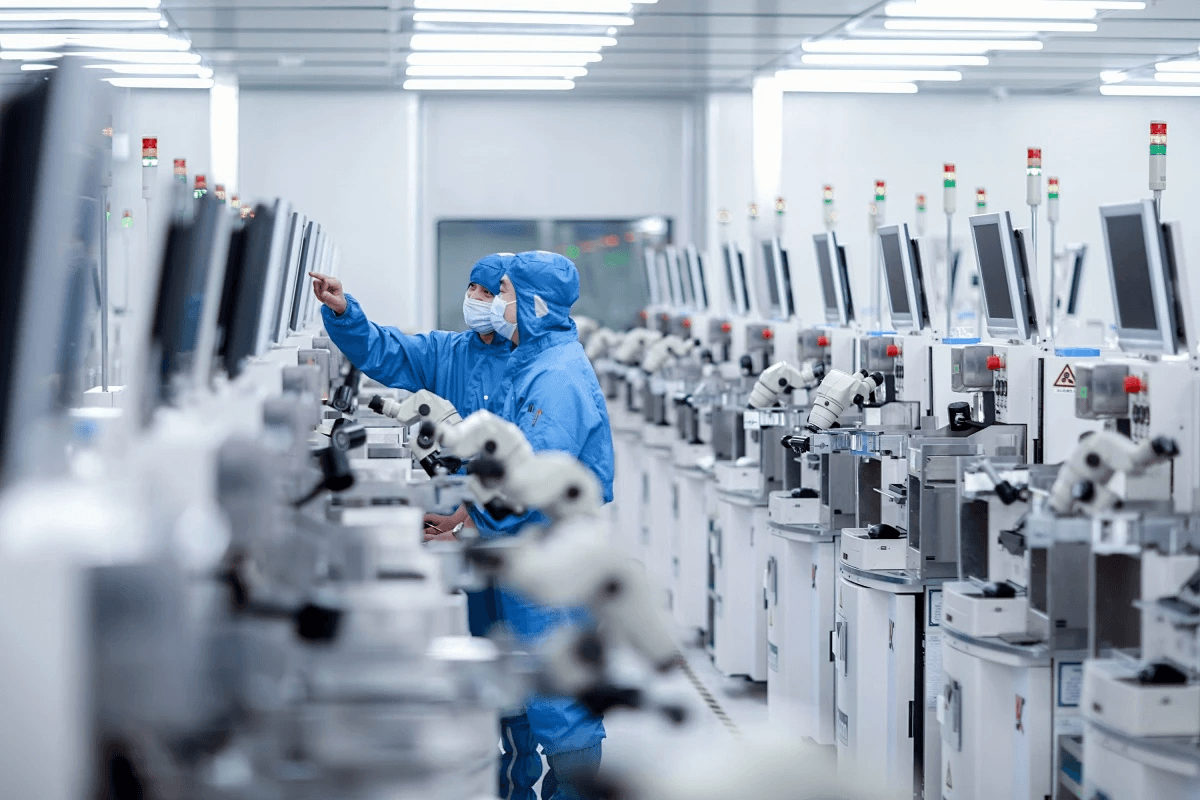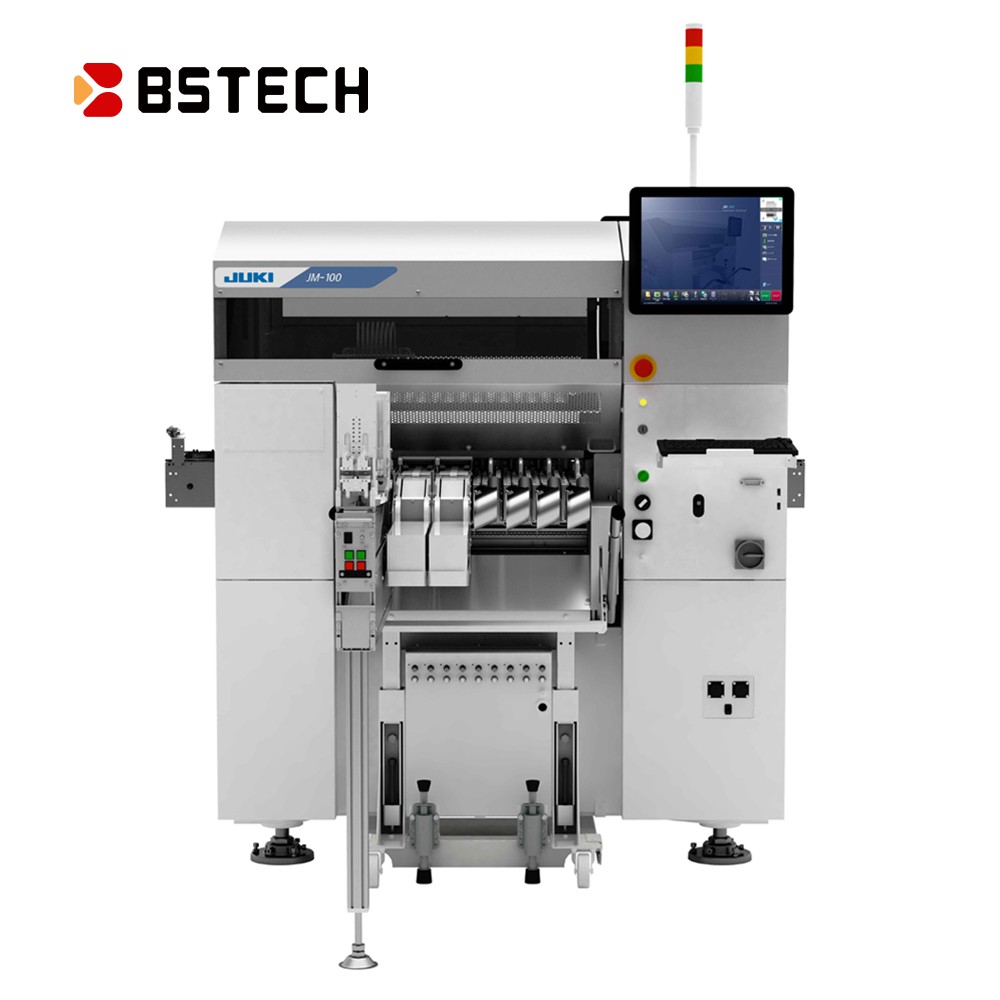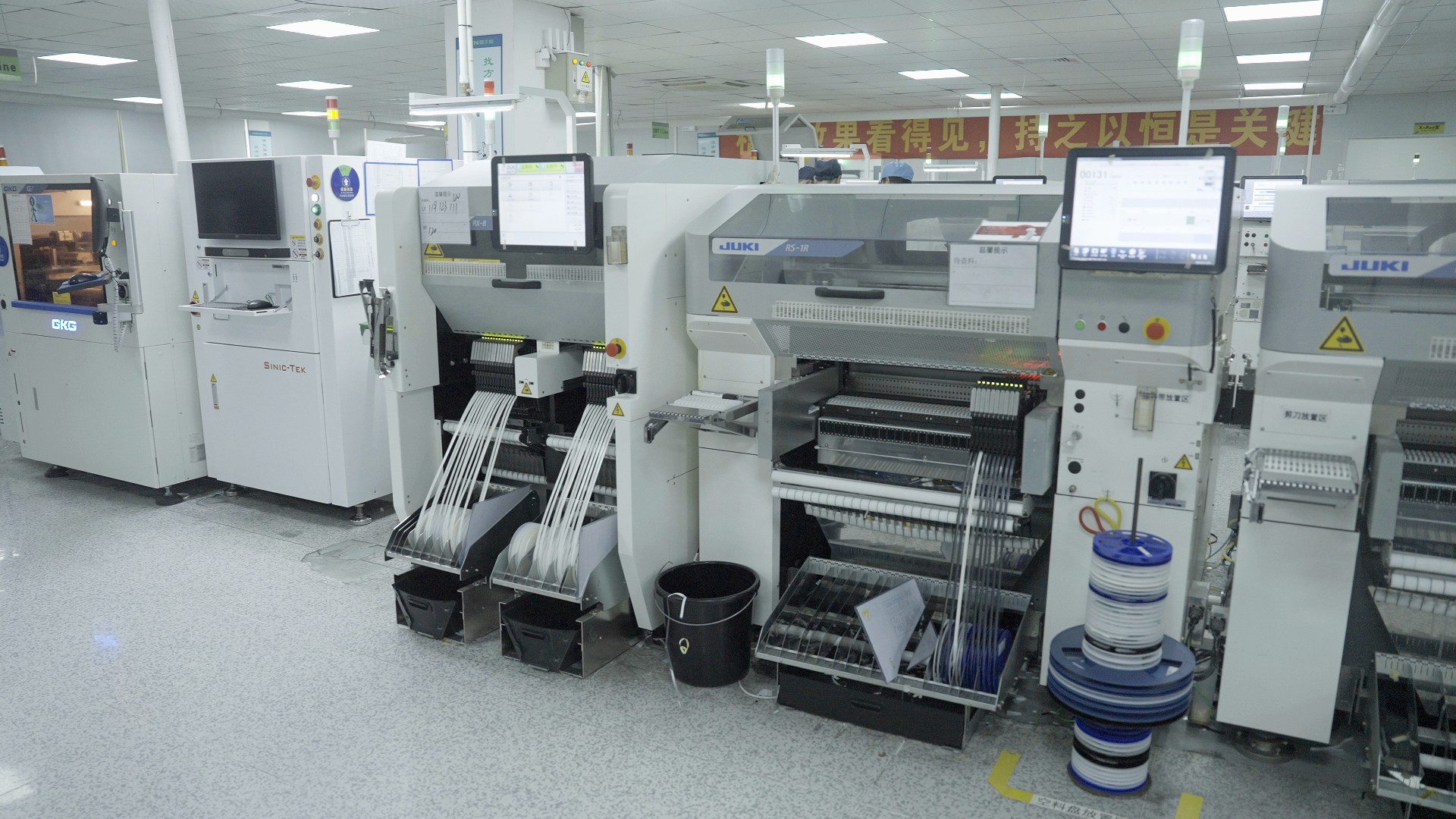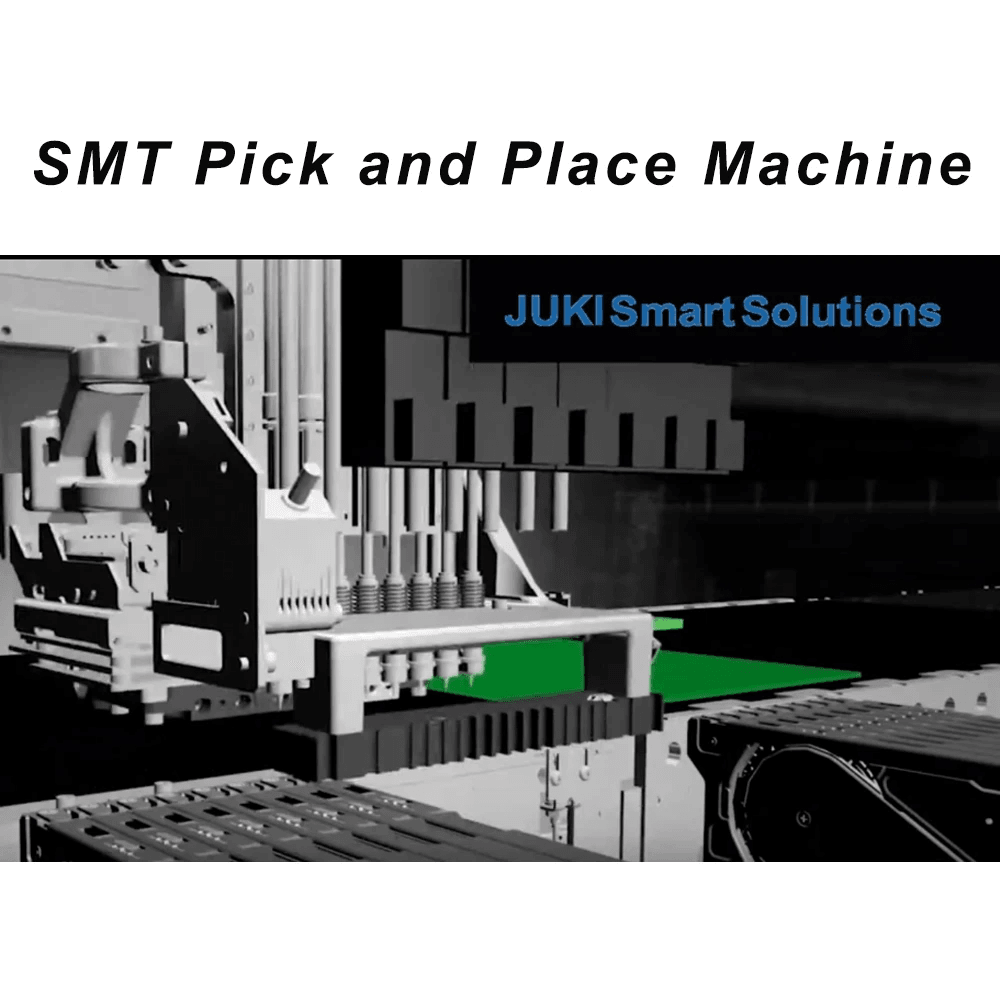Introduction
In the fast-paced world of electronics, the significance of quality PCB manufacturing machines cannot be overstated. These machines are the backbone of circuit card assembly, ensuring that printed circuit assemblies (PCBs) are produced with precision and efficiency. With the right equipment, manufacturers can streamline their processes and enhance the quality of their products, making informed decisions on PCB manufacturing and assembly crucial for success.
Importance of Quality PCB Manufacturing Machines
Quality PCB manufacturing machines play a vital role in determining the overall effectiveness and reliability of circuit board production. Investing in high-performance equipment not only boosts production speed but also minimizes defects in printed circuit assembly, leading to a more dependable end product. As technology advances, the demand for sophisticated PCB manufacturing and assembly solutions continues to grow, making it essential for companies to prioritize quality when selecting their machinery.
The Role of PCB Manufacturing in Electronics
PCB manufacturing is at the heart of modern electronics; it serves as the foundation upon which countless devices are built. From smartphones to medical equipment, virtually every electronic device relies on expertly crafted PCBs to function correctly. The precision involved in creating a robust pcb assembly board ensures that electronic components operate seamlessly together, underscoring the importance of investing in top-notch pcb manufacturing and assembly technologies.
How to Choose the Right Machines
Selecting suitable PCB manufacturing machines requires careful consideration of various factors including speed, efficiency, and versatility for different circuit board designs. Manufacturers should evaluate their specific needs against available options while also considering integration with automated systems for enhanced productivity. By focusing on these key aspects during selection, businesses can ensure they invest wisely in equipment that will elevate their pcb manufacturing assembly capabilities for years to come.
Leading PCB Manufacturing Machines on the Market

In the fast-evolving world of electronics, having the right PCB manufacturing machines is crucial for efficiency and quality. The market is filled with innovative options that cater to various needs in circuit card assembly and printed circuit assembly. Let's explore some of the leading manufacturers making waves in the PCB manufacturing and assembly landscape.
ASM Assembly Systems: Innovating with SIPLACE
ASM Assembly Systems has established itself as a powerhouse in PCB manufacturing machines, particularly with its SIPLACE series. These machines are renowned for their ability to handle high-speed production while maintaining exceptional precision, making them ideal for complex circuit board designs. With features like advanced vision systems and flexible feeder options, SIPLACE machines enhance both productivity and quality in printed circuit assembly.
Moreover, ASM’s commitment to innovation means they are always at the forefront of technology trends in PCB manufacturing. Their solutions not only streamline processes but also adapt seamlessly to various circuit card assembly requirements, ensuring manufacturers stay competitive. Investing in ASM's SIPLACE technology can significantly impact your overall pcb manufacturing and assembly efficiency.
JUKI: Precision with Pick and Place Machines
JUKI has long been synonymous with precision when it comes to pick and place machines used in PCB manufacturing. Their equipment is designed to ensure accurate placement of components on a pcb assembly board, which is critical for reliable electronic performance. With a range of models available, JUKI caters to different production scales, from small-batch runs to high-volume factories.
One standout feature of JUKI machines is their user-friendly interfaces combined with powerful software that optimizes workflow during printed circuit assembly processes. This not only minimizes errors but also enhances speed—two vital components for any successful pcb manufacturing operation. By choosing JUKI, manufacturers can expect top-tier performance that translates into better product quality and reduced production costs.
Panasonic: Advanced Printed Circuit Assembly Solutions
Panasonic offers advanced solutions tailored specifically for printed circuit assembly needs within the PCB manufacturing sector. Their cutting-edge technology focuses on improving operational efficiency while ensuring high-quality results across diverse applications—from consumer electronics to automotive systems. Panasonic’s commitment to innovation allows them to provide robust machinery that meets evolving industry demands.
The versatility of Panasonic's equipment makes it suitable for various types of circuit board designs, enabling manufacturers to adapt quickly without compromising on quality or speed during pcb manufacturing assembly processes. Additionally, their focus on integrating automation into operations helps businesses streamline workflows further while reducing labor costs associated with manual handling in pcb manufacturing and assembly tasks. Choosing Panasonic means investing in a future-proof solution that aligns well with current trends toward automation.
Essential Features of Efficient PCB Manufacturing Equipment

In the fast-paced world of electronics, having efficient PCB manufacturing machines is paramount. These machines are designed to enhance the production process, ensuring that circuit card assembly and printed circuit assembly are executed with precision. Understanding the essential features of these machines can significantly impact the quality and efficiency of your PCB manufacturing and assembly processes.
Speed and Efficiency in Production
One of the most critical aspects of any PCB manufacturing machine is its speed and efficiency in production. High-speed machines can drastically reduce cycle times, allowing for quicker turnaround on projects without compromising quality. This efficiency not only boosts productivity but also enhances profitability by enabling manufacturers to meet tight deadlines while maintaining high standards in circuit board quality.
Moreover, modern PCB assembly boards are equipped with advanced technology that optimizes workflow, minimizing downtime between different phases of production. This means that manufacturers can switch from one project to another seamlessly, making it easier to handle multiple orders simultaneously. In a competitive market where time is money, investing in fast and efficient PCB manufacturing equipment is a no-brainer.
Versatility for Various Circuit Board Designs
Another essential feature of effective PCB manufacturing machines is their versatility in handling various circuit board designs. The ability to work with different types of printed circuit assembly ensures that manufacturers can cater to a wide range of industries and applications—from consumer electronics to automotive components. This flexibility allows companies to diversify their product offerings without needing separate machines for each design type.
Additionally, versatile equipment enables quick adjustments for different specifications, which is crucial as design requirements evolve over time. Manufacturers benefit from reduced setup times when switching between projects, allowing them to respond quickly to market demands or customer requests for custom solutions. With such adaptability built into their operations, businesses can remain agile in an ever-changing landscape.
Integration with Automated Systems
The integration capabilities of modern PCB manufacturing and assembly equipment cannot be overlooked either; seamless communication between machines enhances overall productivity significantly. When these systems are integrated into automated workflows, they enable real-time monitoring and data collection throughout the production process—providing valuable insights into performance metrics such as yield rates and maintenance needs.
This level of automation streamlines operations by reducing human error while increasing consistency across all stages of production—from initial fabrication through final inspection on the pcb assembly board. Furthermore, interconnected systems allow for better resource management; materials can be tracked more efficiently throughout the supply chain which optimizes inventory levels and reduces waste during pcb manufacturing assembly processes.
By prioritizing speed, versatility, and integration within your choice of pcb manufacturing machines, you position your business for success in today's competitive electronics market.
Bensun Technology’s Contribution to PCB Manufacturing

When it comes to PCB manufacturing, Bensun Technology stands out as a key player in providing high-quality equipment and solutions. Their commitment to excellence in circuit card assembly and printed circuit assembly has made them a go-to source for businesses looking to enhance their production capabilities. With an extensive range of pcb manufacturing machines, they cater to the diverse needs of the electronics industry.
Your Go-To Source of JUKI Machines
Bensun Technology proudly offers an impressive lineup of JUKI machines that are essential for modern pcb manufacturing and assembly. Known for their precision and reliability, these machines are designed to streamline the entire process of circuit board production. By integrating advanced technology with user-friendly interfaces, Bensun ensures that manufacturers can maximize efficiency while maintaining high standards in quality.
The JUKI machines available through Bensun Technology are particularly renowned for their versatility in handling various types of pcb assembly boards. This adaptability allows companies to switch between different projects seamlessly, making it easier to respond to changing market demands. As a result, businesses can optimize their workflow and reduce downtime in pcb manufacturing and assembly processes.
Specialized Solutions for Different Industries
Understanding that each industry has unique requirements, Bensun Technology provides specialized solutions tailored specifically for diverse sectors such as automotive, telecommunications, and consumer electronics. Their expertise in customizing pcb manufacturing machines means they can help clients achieve optimal results no matter the complexity of their circuit board designs. This level of customization not only enhances production efficiency but also ensures that every product meets stringent industry standards.
Moreover, Bensun’s dedication extends beyond just providing machinery; they offer comprehensive support services that include training and maintenance programs tailored to different industries' needs. This holistic approach empowers manufacturers by equipping them with the knowledge necessary to operate their equipment effectively while minimizing operational hiccups during production runs. Therefore, investing in Bensun's specialized solutions translates into significant long-term benefits for companies engaged in pcb manufacturing and assembly.
Impact on Production Efficiency and Quality
The impact of using Bensun Technology's offerings on production efficiency cannot be overstated; businesses have reported noticeable improvements after implementing their JUKI machines into their operations. The enhanced speed at which these pcb manufacturing machines operate leads directly to shorter lead times and increased output without compromising quality standards on circuit card assembly tasks. As a result, manufacturers can meet customer demands more effectively while also improving profitability.
In addition to speed, the integration capabilities offered by these machines facilitate smoother workflows across different stages of printed circuit assembly processes—reducing bottlenecks significantly within the overall system. With enhanced accuracy during placement operations on the pcb assembly board, manufacturers see fewer defects that could lead to costly rework or scrapping of components altogether—ultimately preserving both time and resources invested in production efforts.
By choosing Bensun Technology as your partner in PCB manufacturing solutions, you position your business at the forefront of innovation within this ever-evolving industry landscape—setting yourself up not just for immediate success but also future growth opportunities driven by cutting-edge technology advancements.
The Future of PCB Manufacturing Technology

As we look toward the horizon of PCB manufacturing technology, it's clear that innovation is the name of the game. The landscape is rapidly evolving with trends that emphasize automation and smart manufacturing, which are set to redefine how circuit card assembly is approached. These advancements not only enhance efficiency but also improve the quality and precision of printed circuit assembly processes.
Trends in Automation and Smart Manufacturing
Automation is at the forefront of modern PCB manufacturing machines, driving significant improvements in production speed and accuracy. Smart manufacturing technologies, such as IoT integration, allow for real-time monitoring and data analytics, enabling manufacturers to optimize their operations continuously. This transition towards automated systems means that circuit board assembly can be achieved with minimal human intervention, reducing errors and enhancing overall productivity.
The rise of Industry 4.0 has further propelled these trends, where interconnected devices work collaboratively within a smart factory environment. With automated solutions for pcb manufacturing and assembly becoming more accessible, businesses can scale their operations efficiently while maintaining high-quality standards in circuit card assembly. Ultimately, these developments promise a future where pcb manufacturing machines operate seamlessly alongside advanced robotics to create an agile production line.
Innovations in PCB Assembly and Manufacturing
The future also promises a plethora of exciting innovations in PCB assembly and manufacturing techniques that will reshape the industry landscape. One notable trend is the advent of advanced materials used in printed circuit boards that offer better performance while being lighter and more flexible than traditional options. These innovations open up new possibilities for product design across various sectors including consumer electronics, automotive applications, and medical devices.
Moreover, cutting-edge technologies like 3D printing are beginning to make waves within pcb manufacturing processes by allowing for rapid prototyping and reduced lead times for new designs. This shift not only accelerates development cycles but also enhances customization capabilities for unique circuit board requirements. As manufacturers embrace these innovations in pcb assembly board technology, we can expect enhanced functionality combined with reduced costs.
Sustainability in PCB Production Practices
Sustainability is no longer just a buzzword; it’s becoming an essential aspect of pcb manufacturing practices as companies strive to minimize their environmental impact while maximizing efficiency. Manufacturers are increasingly adopting eco-friendly materials and processes that reduce waste during both printed circuit assembly and overall production stages. By focusing on sustainable practices, they not only comply with regulatory standards but also appeal to environmentally conscious consumers.
Additionally, advancements in recycling technologies for electronic waste enable manufacturers to reclaim valuable materials from old circuit boards effectively—contributing to a circular economy within the industry. This commitment to sustainability reflects a broader trend where businesses recognize that responsible practices can coexist with profitability while ensuring long-term viability in the market for pcb manufacturing machines.
Maintenance Tips for PCB Manufacturing Machines

Maintaining your PCB manufacturing machines is crucial for ensuring consistent quality and efficiency in your circuit card assembly processes. Regular maintenance not only extends the lifespan of your equipment but also enhances the overall performance of your printed circuit assembly operations. By adhering to a systematic maintenance routine, you can minimize downtime and avoid costly repairs that could disrupt production.
Regular Check-Ups for Optimal Performance
Implementing regular check-ups is essential for keeping your PCB manufacturing machines running smoothly. Schedule routine inspections to assess the condition of critical components, such as feeders, nozzles, and conveyors used in pcb assembly board processes. These proactive measures can help identify potential issues before they escalate into significant problems, ensuring that your pcb manufacturing and assembly lines remain efficient.
In addition to visual inspections, consider utilizing diagnostic tools that can monitor the performance of your equipment in real-time. This technology provides valuable insights into operational efficiency and helps pinpoint areas that may require attention or adjustment. By prioritizing regular check-ups, you’ll safeguard the integrity of your pcb manufacturing assembly operations while maintaining high standards in quality control.
Common Issues and How to Solve Them
Even with diligent maintenance, common issues may arise with PCB manufacturing machines that can impact circuit board production efficiency. One frequent problem is misalignment during the pick-and-place process, which can lead to defective assemblies on the printed circuit assembly line. To address this issue, recalibrating machine settings or adjusting component placement algorithms often resolves alignment discrepancies.
Another common issue involves feeder jams or malfunctions during operation; these can halt production entirely if not addressed promptly. Regularly cleaning feeders and inspecting them for wear will help prevent jams from occurring in the first place. Additionally, having a troubleshooting guide on hand will empower operators to quickly diagnose problems when they arise—keeping those pcb assembly and manufacturing lines moving smoothly.
Best Practices for Longevity of Equipment
To ensure longevity in your PCB manufacturing machines, adopting best practices is paramount in maintaining their operational integrity over time. First off, always follow manufacturer guidelines regarding usage limits and maintenance schedules specific to each machine used in circuit card assembly tasks. These guidelines are designed to optimize performance while minimizing wear and tear on essential components.
Moreover, investing time in training staff on proper handling techniques significantly reduces accidental damage during operation or setup procedures involving printed circuit assemblies. Encourage a culture of accountability where operators take pride in their workspaces—cleaning up spills or debris that could interfere with machine functionality goes a long way towards preserving equipment longevity as well!
Lastly, consider implementing an inventory management system for spare parts associated with pcb manufacturing machines; having critical components readily available ensures quick repairs without excessive downtime affecting production schedules.
Conclusion
In the ever-evolving world of electronics, quality PCB manufacturing machines play a pivotal role in ensuring efficient and accurate circuit card assembly. From leading brands like ASM, JUKI, and Panasonic to specialized solutions from companies like Bensun Technology, the market is filled with options that cater to diverse needs in printed circuit assembly. Choosing the right equipment not only enhances production capabilities but also impacts the overall quality of your PCB manufacturing and assembly processes.
Summary of Top PCB Manufacturing Machines
The top contenders in PCB manufacturing machines include ASM Assembly Systems with its innovative SIPLACE technology, JUKI known for its precision pick and place machines, and Panasonic offering advanced printed circuit assembly solutions. Each brand brings unique features to the table that enhance speed, accuracy, and versatility in circuit board production. By investing in these high-quality machines, manufacturers can streamline their pcb assembly board processes while maintaining exceptional standards.
Future-Proofing Your PCB Manufacturing Process
As technology advances at lightning speed, future-proofing your PCB manufacturing process becomes essential for staying competitive. Automation trends are reshaping how we approach pcb manufacturing assembly; integrating smart technologies can significantly boost efficiency and reduce operational costs. By adopting cutting-edge innovations today, businesses can ensure their printed circuit assembly operations remain relevant and capable of meeting tomorrow's demands.
Why Investing in Quality Equipment Matters
Investing in quality equipment is not just about immediate gains; it’s a long-term strategy that pays dividends through improved efficiency and reliability. High-quality pcb manufacturing machines reduce downtime due to fewer malfunctions while enhancing the overall quality of your products—essential for maintaining customer satisfaction in an increasingly competitive landscape. Ultimately, prioritizing top-notch machinery ensures that your circuit board production meets industry standards while paving the way for future growth.
